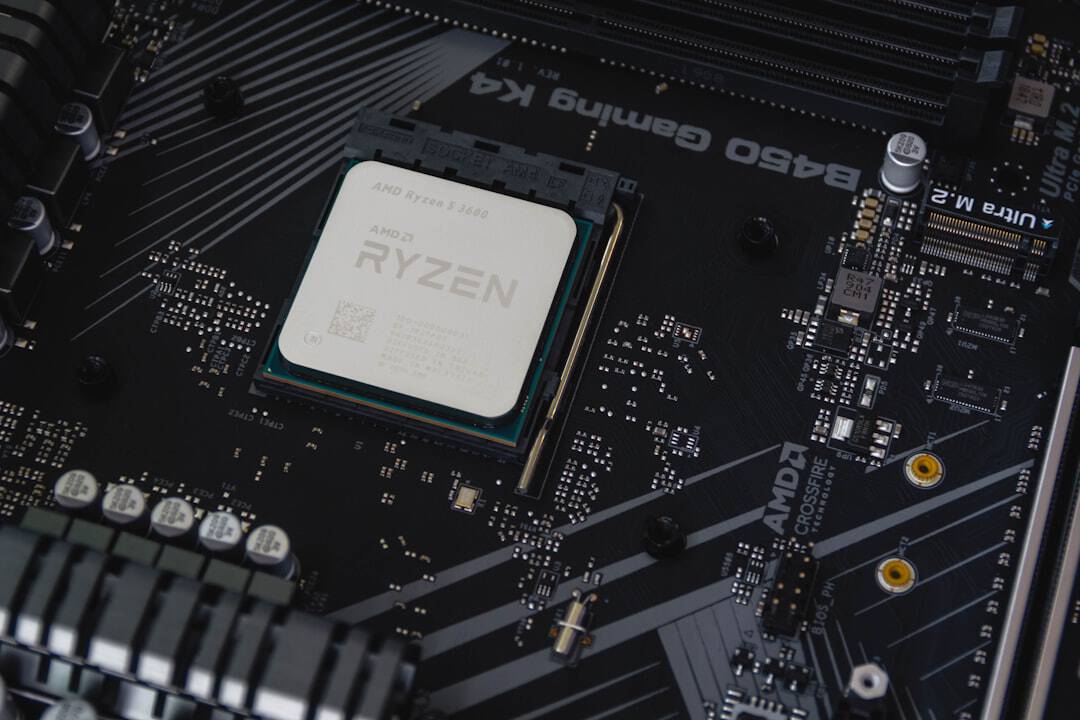The metaverse is a concept that has gained significant attention in recent years. It refers to a collective virtual shared space created by the convergence of virtually enhanced physical reality and physically persistent virtual reality. This virtual universe combines multiple virtual worlds, augmented reality, and the internet, allowing users to interact with computer-generated environments and other users in a highly immersive manner.
While the concept of the metaverse has been popularized by science fiction, recent technological advancements have made it increasingly feasible. The metaverse has the potential to revolutionize how we interact with technology, blurring the lines between physical and digital worlds. The impact of the metaverse could extend to various aspects of our lives, including social interactions, relationships, economic opportunities, and education.
As technology progresses, the metaverse may become an integral part of daily life, offering new ways to work, play, and learn. However, this potential also brings challenges, such as ethical and legal considerations that need to be addressed. As we move towards a more interconnected digital world, it is crucial to understand the evolution of virtual reality technology and its potential impact on society.
The development of the metaverse represents a significant shift in how we perceive and interact with digital spaces, and its implications for the future of human interaction and technological integration are far-reaching.
Key Takeaways
- The metaverse is a collective virtual shared space, created by the convergence of virtually enhanced physical reality and physically persistent virtual reality.
- Virtual reality technology has evolved from basic 3D graphics to immersive experiences with the use of headsets and haptic feedback devices.
- The metaverse has the potential to impact social interactions and relationships by providing new ways for people to connect and interact in virtual spaces.
- Economic opportunities in the metaverse include virtual real estate, digital goods and services, but challenges such as privacy and security concerns also arise.
- Ethical and legal considerations in the metaverse include issues of ownership, identity, and governance in virtual spaces.
- The integration of the metaverse with real world environments can lead to new forms of mixed reality experiences and interactions.
- The metaverse has the potential to revolutionize education and learning by providing immersive and interactive virtual environments for teaching and training.
Evolution of Virtual Reality Technology
Advancements in Technology
However, with advancements in technology, VR has become more affordable and user-friendly. The development of head-mounted displays (HMDs) and motion tracking technology has allowed for more immersive and interactive experiences. In recent years, VR has expanded beyond gaming and entertainment, with applications in healthcare, education, and training.
The Role of Augmented Reality
Augmented reality (AR) has also played a significant role in the evolution of virtual reality technology. AR overlays digital information onto the real world, creating a mixed reality experience. This technology has been popularized by mobile apps such as Pokemon Go, but it also has practical applications in fields such as architecture and engineering.
The Future of Virtual Reality
The combination of VR and AR has laid the groundwork for the metaverse, creating a seamless blend of physical and digital environments. As technology continues to advance, we can expect even more immersive and realistic virtual experiences that will further blur the lines between the real and virtual worlds.
Impact on Social Interactions and Relationships

The metaverse has the potential to revolutionize social interactions and relationships by providing new ways for people to connect and communicate. In a virtual environment, users can interact with others in a more immersive and engaging way, breaking down barriers of physical distance and creating a sense of presence. This could have profound implications for long-distance relationships, allowing people to feel closer to their loved ones even when they are far apart.
Additionally, the metaverse could provide new opportunities for socializing and networking, offering virtual spaces for people to meet and collaborate regardless of their physical location. However, there are also concerns about the impact of the metaverse on social interactions and relationships. Some worry that excessive immersion in virtual environments could lead to a decline in face-to-face interactions and a loss of genuine human connection.
There are also concerns about privacy and security in the metaverse, as users may be vulnerable to harassment or exploitation in virtual spaces. As we navigate the potential benefits and challenges of the metaverse, it will be important to consider how this technology can be used to enhance social interactions while also safeguarding against potential risks.
Economic Opportunities and Challenges
The metaverse presents a wide range of economic opportunities, from new forms of entertainment and commerce to innovative ways of working and collaborating. Virtual worlds within the metaverse could become hubs for social activities, entertainment events, and virtual tourism, creating new revenue streams for businesses and content creators. Additionally, the metaverse could revolutionize e-commerce by providing immersive shopping experiences that go beyond traditional online retail.
Virtual real estate within the metaverse could also become a valuable commodity, with opportunities for investment and development. However, there are also economic challenges associated with the metaverse. As with any new technology, there will be a period of adjustment as industries adapt to the potential disruptions caused by the metaverse.
Traditional businesses may struggle to compete with virtual counterparts, leading to job displacement and economic uncertainty. There are also concerns about the monetization of virtual spaces within the metaverse, as well as issues related to intellectual property rights and digital ownership. As we explore the economic potential of the metaverse, it will be important to consider how this technology can be harnessed for positive economic growth while mitigating potential negative impacts.
Ethical and Legal Considerations
The rise of the metaverse raises important ethical and legal considerations that need to be addressed as this technology continues to develop. One of the key ethical concerns is related to privacy and data security in virtual environments. As users spend more time in the metaverse, there is a risk that personal information could be exploited or misused by malicious actors.
Additionally, there are concerns about digital identity and representation in virtual spaces, as well as issues related to consent and autonomy in virtual interactions. From a legal standpoint, there are numerous challenges associated with regulating activities within the metaverse. Questions about jurisdiction, taxation, and intellectual property rights in virtual environments are complex and require careful consideration.
Additionally, there are concerns about enforcing laws and regulations in the metaverse, as traditional legal frameworks may not easily translate to virtual spaces. As we navigate these ethical and legal considerations, it will be important to develop policies and guidelines that protect users while also fostering innovation and creativity within the metaverse.
Integration with Real World Environments

Enhancing Physical Experiences
The metaverse can also provide new avenues for remote work and collaboration by creating virtual workspaces that mimic real-world office environments. This can increase productivity, flexibility, and accessibility, while reducing the need for physical commuting.
Challenges and Concerns
However, there are also challenges associated with integrating the metaverse with real-world environments. As virtual experiences become more immersive and realistic, there is a risk that users may become disconnected from their physical surroundings. Moreover, there are concerns about the impact of prolonged exposure to virtual environments on mental health and well-being.
Striking a Balance
As we explore the potential integration of the metaverse with real-world environments, it is crucial to consider how this technology can enhance our physical experiences while also preserving our connection to the natural world. By finding a balance between the two, we can harness the benefits of the metaverse while minimizing its potential drawbacks.
Potential for Education and Learning
The metaverse has the potential to revolutionize education by providing new ways for students to learn and engage with course material. Virtual classrooms within the metaverse could offer immersive learning experiences that go beyond traditional lectures and textbooks. For example, students could explore historical events in virtual simulations or conduct scientific experiments in virtual laboratories.
Additionally, the metaverse could provide new opportunities for distance learning by connecting students from around the world in shared virtual spaces. However, there are also challenges associated with integrating the metaverse into education. There is a risk that virtual learning environments may not be accessible to all students, particularly those from disadvantaged backgrounds or with disabilities.
Additionally, there are concerns about maintaining academic integrity in virtual classrooms, as well as issues related to digital literacy and online safety for students. As we explore the potential for education within the metaverse, it will be important to consider how this technology can be used to enhance learning while also addressing potential barriers to access and inclusion. In conclusion, the metaverse represents an exciting new frontier in technology that has the potential to revolutionize how we interact with digital environments.
As this concept continues to evolve, it will be important to consider its impact on social interactions, economic opportunities, ethical considerations, integration with real-world environments, and potential for education. By addressing these various aspects of the metaverse, we can work towards harnessing its potential for positive change while mitigating potential risks.
The Metaverse is a concept that has been gaining traction in recent years, with many experts predicting that it will become a significant part of our daily lives in the next decade. According to a recent article on Metaversum, the industry is projected to see significant growth and innovation in the coming years, with new technologies and platforms emerging to support the development of the Metaverse. As we look ahead to the future of the Metaverse, it’s interesting to consider what visionaries of the past, such as Albert Einstein, might have thought about this virtual world. In another thought-provoking article on Metaversum, the author explores what Einstein’s perspective on the Metaverse might have been. Additionally, as more and more people begin to enter the Metaverse, the concept of creating a virtual identity becomes increasingly important. A recent article on Metaversum delves into the process of creating a virtual identity and the implications it may have on our real-world lives. As the Metaverse continues to evolve, it will be fascinating to see how these trends and ideas play out in the coming years.
FAQs
What is the Metaverse?
The Metaverse is a collective virtual shared space, created by the convergence of virtually enhanced physical reality and physically persistent virtual reality. It encompasses a wide range of virtual experiences, including virtual reality (VR), augmented reality (AR), and the internet.
How is the Metaverse expected to evolve in the next decade?
In the next decade, the Metaverse is expected to become more immersive and interconnected, with advancements in technology such as 5G, artificial intelligence, and virtual reality. It is also expected to have a significant impact on various industries, including gaming, entertainment, education, and commerce.
What are some potential applications of the Metaverse in the future?
The Metaverse has the potential to be used for a wide range of applications, including virtual meetings and events, virtual shopping experiences, immersive entertainment, virtual tourism, virtual education, and virtual workspaces.
Some potential challenges and concerns related to the development of the Metaverse include issues related to privacy and security, potential addiction to virtual experiences, the digital divide, and the potential for misinformation and manipulation within virtual spaces.
How might the Metaverse impact society and culture in the next decade?
The Metaverse has the potential to significantly impact society and culture in the next decade, by changing the way people interact, work, learn, and entertain themselves. It may also lead to new forms of art, expression, and social interaction.











Leave a Reply